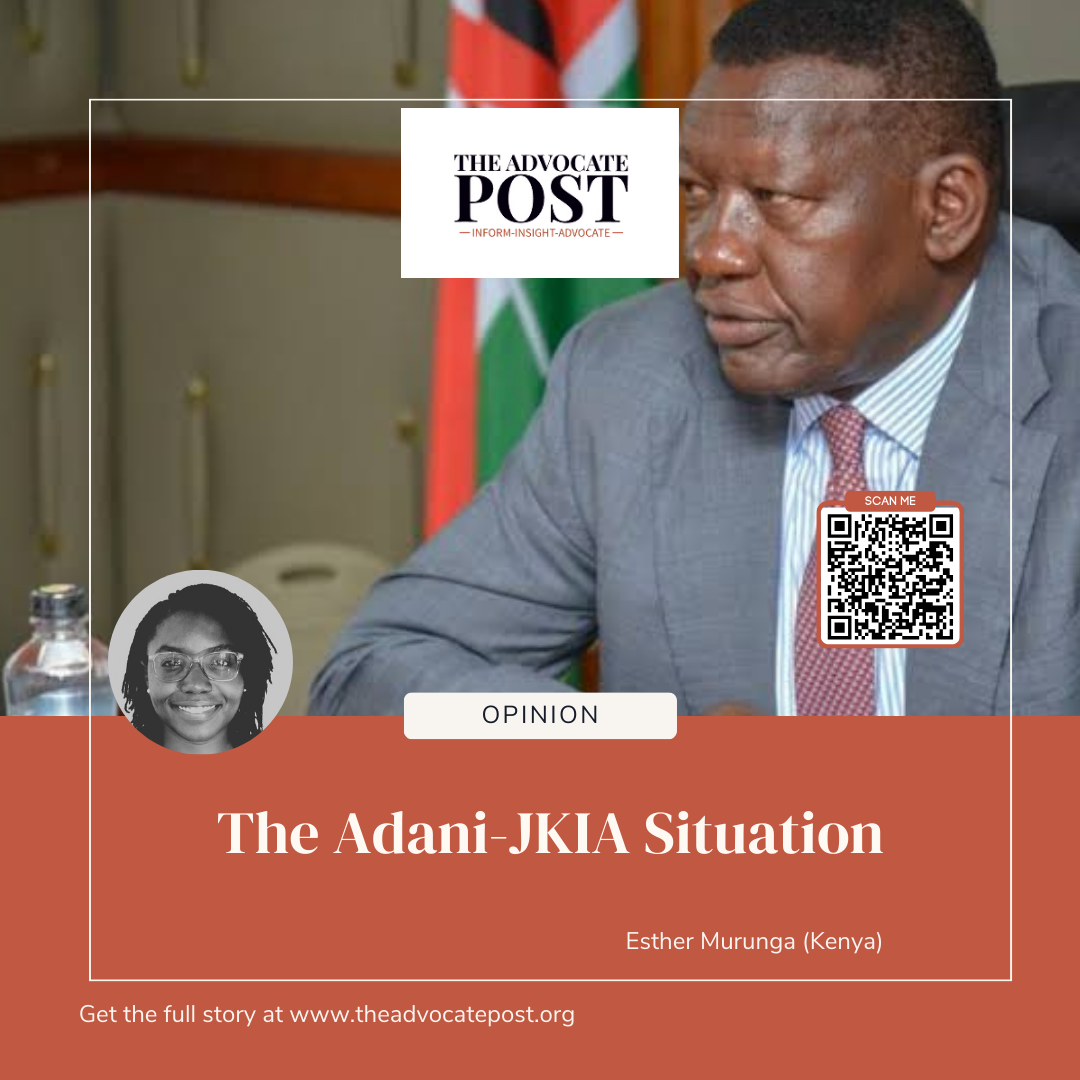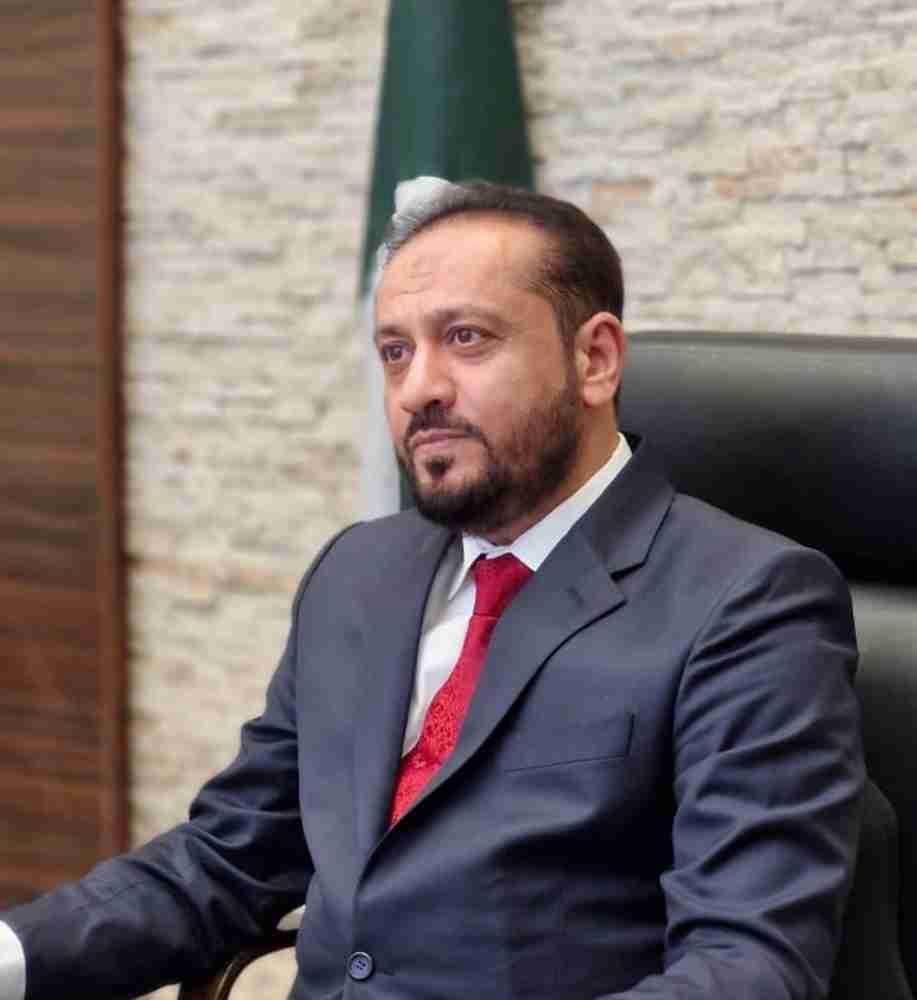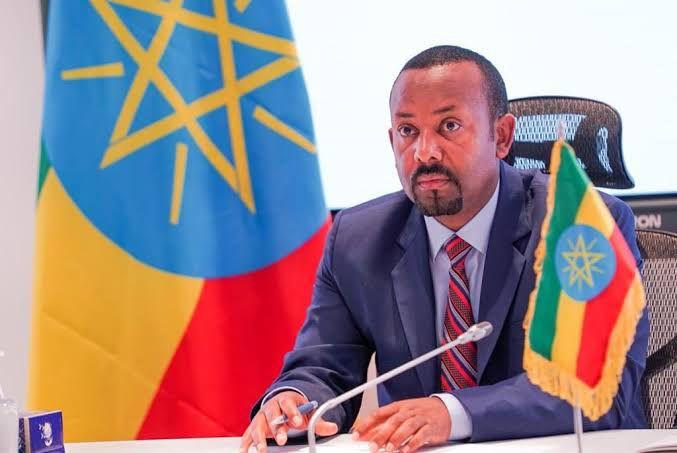By Esther Murunga (Kenya)
From where I sit, traveling outside Kenya is a luxury I can’t yet afford as a young professional. However, the deal between Adani Enterprises and the Kenyan Government over Jomo Kenyatta International Airport (JKIA) deeply concerns me. Here’s why it should matter to you too, whether you’re Kenyan or not.
I first became aware of the Adani Group in September 2024, when airport workers in Kenya went on strike to protest the 30-year lease agreement that the Kenyan government signed with Adani Enterprises for the management of JKIA. The deal raised serious concerns among workers, citizens, and financial experts alike for its lack of transparency and dubious financial terms. The strike sparked public outrage on social media, with protests and debates filling online spaces for nearly two weeks.
I hoped that public protests would push the government to reconsider its stance, but it wasn’t until December 4, 2024, that President William Ruto announced the cancellation of the deal. The surprising twist? The decision to withdraw from the agreement didn’t seem to be driven by public pressure or concerns raised by financial experts. Instead, it was the indictment of Gautam Adani, the Indian billionaire behind the Adani Group, and several top executives that prompted the Kenyan government to rethink its position.
The Indictment that Shook the Deal
On November 20, 2024, a U.S. court in New York indicted Gautam Adani and seven senior executives of the Adani Group on charges of securities and wire fraud. The indictment uncovered a massive bribery scheme in which the group allegedly paid over $250 million in bribes to Indian officials to secure special treatment for its energy projects. This revelation was the tip of the iceberg. The scandal implicated the Adani Group in misleading investors globally, inflating their financial performance, and manipulating stock prices to raise billions of dollars.
The charges against the Adani Group and its executives are staggering. They are accused of fabricating their financial statements to hide costs and liabilities and making false claims about regulatory approvals to mislead investors. These actions have not only violated the Foreign Corrupt Practices Act, but they also raise serious concerns about the integrity of the Adani Group’s operations worldwide.
Local Implications
While the scandal surrounding the Adani Group is alarming, it speaks to a troubling trend where foreign corporations, especially from Asia and the UAE, are increasingly gaining control over Africa’s resources and infrastructure. This is affirmed by the fact that Arab investors have already injected $2 billion into an Abu Dhabi holding company specifically created for the Adani-JKIA deal by the Adani Group. A few months ago, I shared the story of the Maasai in Ngorongoro, who have faced over a decade of evictions from their ancestral land by largely UAE-owned companies with business interests there.
The Adani-JKIA deal emphasises this wave of exploitation cloaked in the guise of development and investment. Many of these foreign entities operate with the blessing (and sometimes complicity) of corrupt government officials, creating a system in which the wealth of African countries.
Global Implications
My research into this situation led me to Adani Watch, an Australian non-profit organization exposing Adani Group’s global misdeeds.
The Adani Group is a conglomerate active globally but mostly in India, where they’ve faced accusations of corruption and environmental destruction. Their key activities includes the proposed Carmichael coal mine in Queensland, Australia, and a thermal power station in northeast India to burn Queensland coal along with building several ports in India and a major Port in Myanmar. These projects have faced opposition from fishing villages and conservationists in these regions. Another joint venture with Wilmar, making them a major refiner and trader in palm oil while others are Coal-fired power stations, Airports, defence industries, Solar powers, Real estate and Gas.
Information is Power
You might be wondering: “How does this concern me, especially if I can barely afford to travel?” The reality is that the Adani-JKIA deal, and others like it, have severe implications for every Kenyan. The long-term economic consequences of such deals could mean higher taxes, fewer resources for public services, and the erosion of national sovereignty.
For now, Kenya can breathe a sigh of relief as the Adani-JKIA deal has been cancelled. However, the fact that a U.S. court played a major role in holding Adani accountable.
The fight against modern colonization begins with informed citizens who demand accountability. Whether you’re Kenyan, Indian, or from any corner of the world, this issue matters. Whether you will take to the streets or speak about it to your community, you are making a difference. It’s not just about Adani’s deal; it’s about the future of our global community and the power dynamics that shape it.





